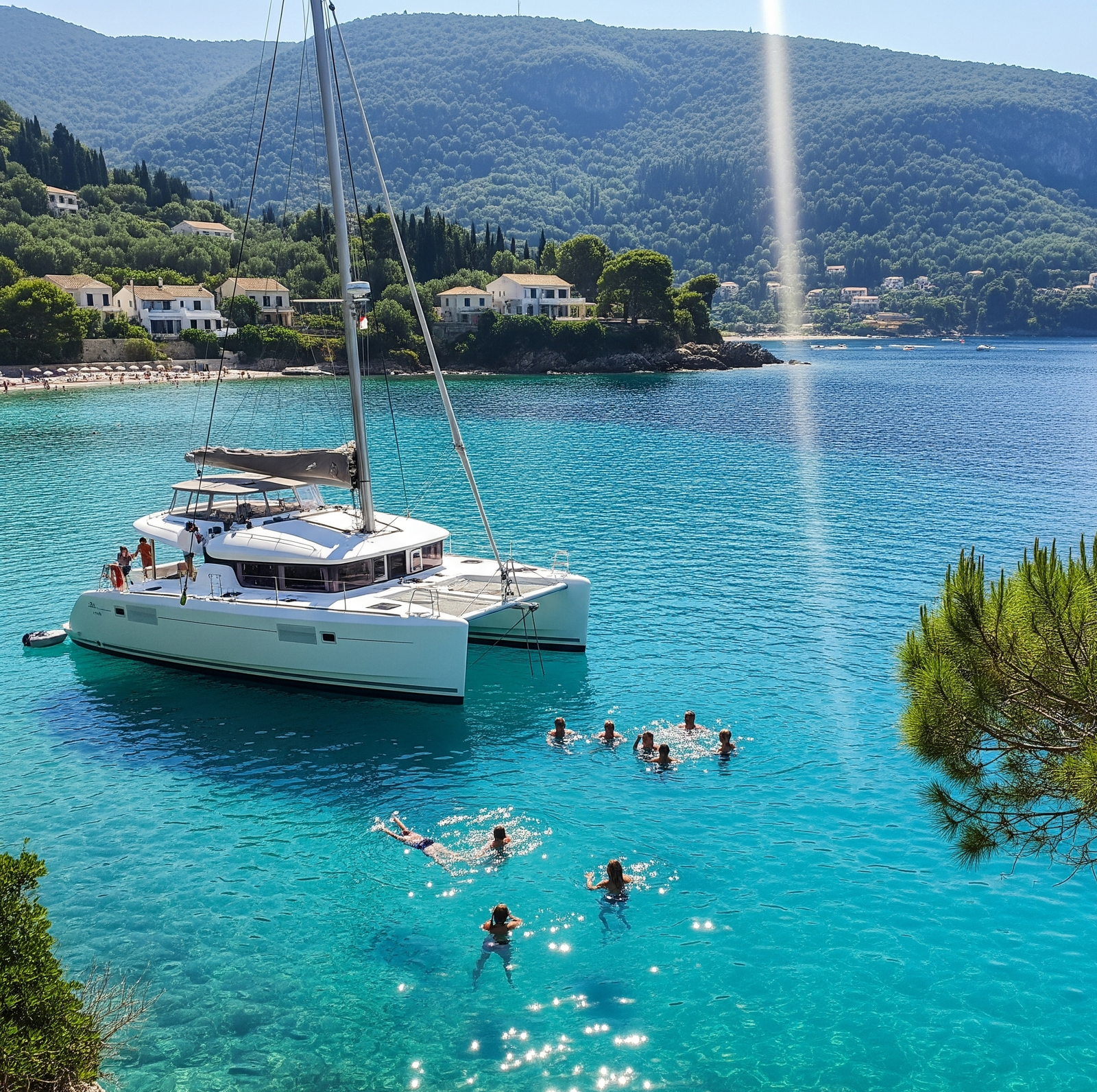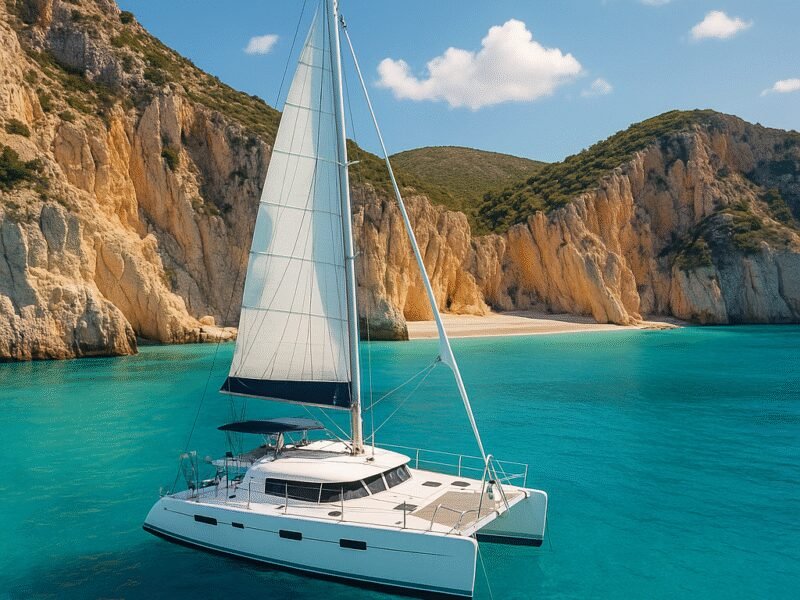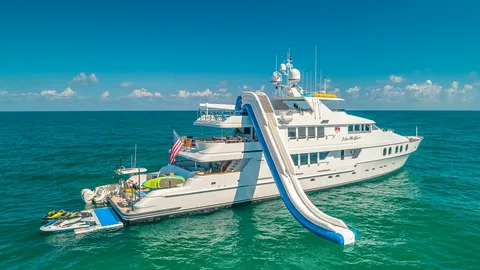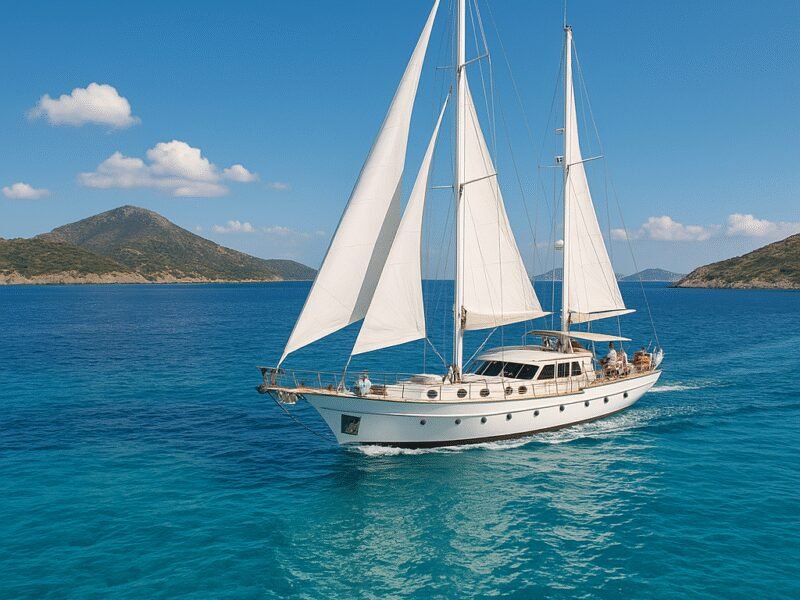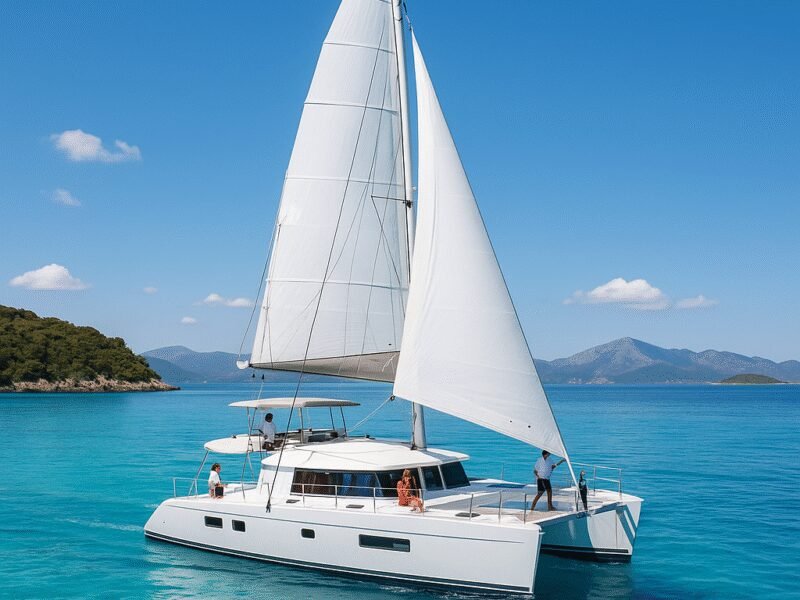- +1 123 456 0606
- info@PrimaCharter.com
- Mon - Fri 09:00-17:00
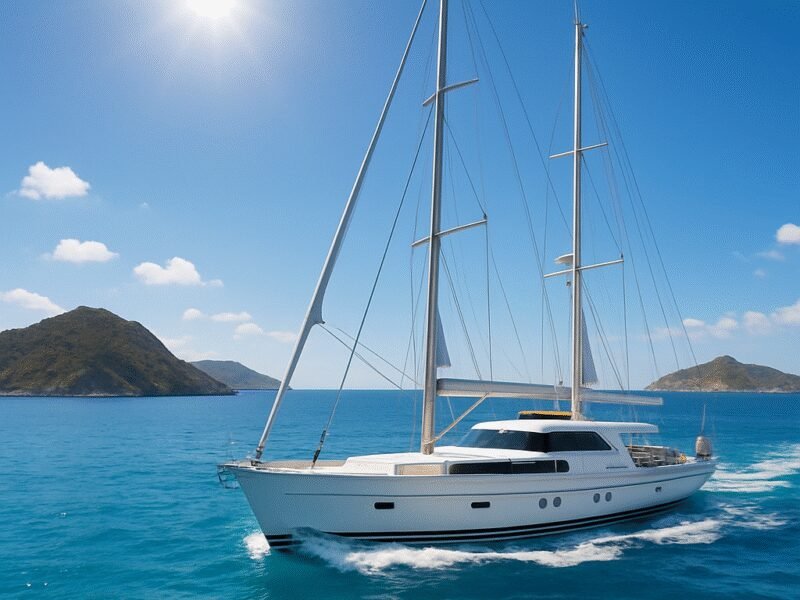

Top Things to Be Careful About on a Yacht Charter in Greece
A yacht holiday in Greece is often seen as the epitome of luxury and relaxation. The azure waters, stunning islands, and rich history create a backdrop for an unforgettable experience. However, this allure can sometimes be accompanied by hidden challenges that can affect your trip. To ensure your sailing adventure is both enjoyable and safe, it’s essential to be aware of potential pitfalls and prepare accordingly. This article will explore the top things to be careful about on a yacht charter in Greece, focusing on safety tips, what to avoid, and yacht holiday warnings to help you navigate your journey smoothly.
Want to give your readers ideas that stir the imagination? Link over to our Top 10 Romantic Greek Islands for Couples by Catamaran — it’s one of our go-to posts when we talk dreamy travel.
Understanding the Weather Patterns
Greece’s weather is a significant factor to consider when chartering a yacht. The summer months bring warm temperatures, ideal for sailing, but they also bring unpredictable winds, particularly the Meltemi. This north wind can appear suddenly and with great strength, especially in July and August, making it crucial for sailors to remain vigilant.
When planning your trip, keep the following in mind:
- Research Wind Patterns: Familiarize yourself with local weather forecasts. Numerous apps and websites offer real-time updates on wind conditions. For instance, Windy and PredictWind are popular choices among sailors that provide detailed wind and weather forecasts. Additionally, consider subscribing to a local weather service that specializes in maritime conditions for more accurate updates. An understanding of the local geography can also enhance your ability to predict changes in wind patterns.
- Choose Your Sailing Days Wisely: Avoid sailing on days when high winds are predicted. Instead, consider relaxing in a beautiful bay and exploring the local area. This not only enhances your experience but also ensures safety for you and your crew. Planning your sailing days around the wind forecasts can transform your sailing experience, allowing for more leisurely exploration. Making arrangements for activities on shore can also fill your days while waiting for better sailing conditions.
- Consult Experienced Skippers: Local skippers can provide invaluable insights into the best sailing routes and safe harbors. Hiring a local skipper can also significantly enhance your experience, as they can share hidden gems and local knowledge about each destination. Their expertise can help you avoid common pitfalls and enhance your understanding of the local maritime culture. Engaging a local skipper can also provide an opportunity to learn sailing techniques specific to the region.
Navigating Crowded Marinas
n
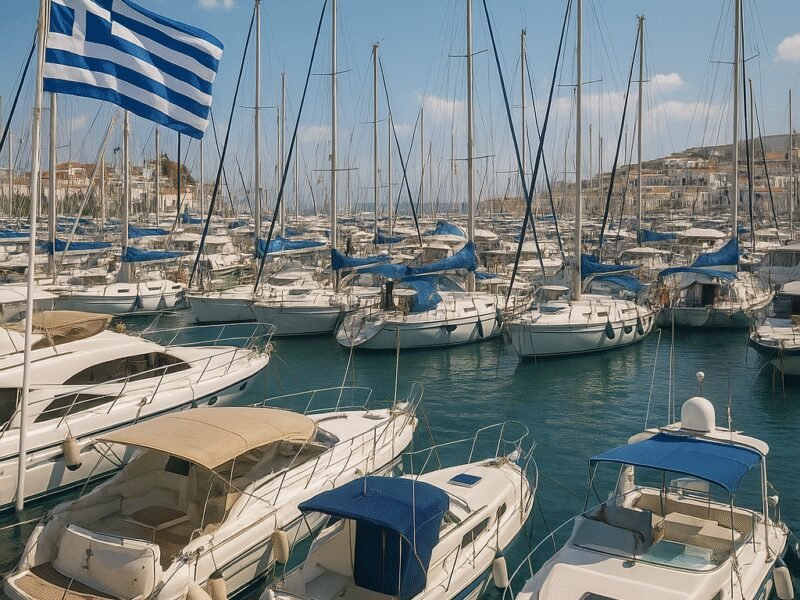
During peak season, marinas in Greece can become congested with boats of all sizes, from luxurious yachts to small sailing boats. This crowding can lead to challenging docking situations and increased risks of accidents. Here are a few strategies to navigate these bustling environments:
- Arrive Early: Aim to dock in the morning when marinas are less busy. This will give you more options for docking and reduce stress. Early arrival also allows you to explore the marina and its facilities, ensuring you are well-prepared for your stay. Consider using this time to familiarize yourself with the amenities available, such as restaurants and shops, which can enhance your overall experience.
- Practice Your Docking Skills: Before your trip, practice docking techniques. Familiarity with your yacht’s maneuverability can save you from mishaps. Consider taking a sailing course or refreshing your skills with a simulator if you haven’t sailed in a while. If possible, practice docking in various conditions to build confidence. If you’re sailing with a friend or family member who has experience, seek their advice and practice together.
- Communicate with Your Crew: Clear communication among crew members can help coordinate docking maneuvers and ensure everyone is on the same page. Use hand signals or walkie-talkies for effective communication, especially in noisy environments. Establishing clear roles for each crew member during docking can streamline the process further. Having a checklist for docking can also help ensure that no critical steps are missed.
Budgeting for Hidden Costs
While the allure of a yacht charter often focuses on the initial rental fee, hidden costs can quickly add up, catching many travelers off guard. Understanding these expenses is critical for a smooth sailing experience. Here’s what to consider:
- Provisioning Costs: Stocking your yacht with food and beverages can be more expensive than anticipated. Consider planning meals in advance, creating a shopping list, and buying in bulk to save money. Don’t forget to include local specialties in your menu for a taste of Greece! Exploring local markets can lead to discovering fresh ingredients that enhance your culinary experience aboard. Planning themed dinners based on regional cuisine can also make mealtimes more exciting.
- Fuel Costs: Fuel can be a significant expense, especially for larger yachts. Factor this into your budget before departing. Some charter companies offer all-inclusive packages, which can help mitigate unexpected fuel costs. Understanding your yacht’s fuel consumption can aid in budgeting accurately for your trip. Comparing fuel prices at different marinas can also help manage costs throughout your journey.
- Mooring Fees: Many popular ports charge mooring fees, which can vary widely from one location to another. Research these costs ahead of time, and consider using anchorages where possible to avoid high fees. Some apps can help you find free or low-cost mooring options in the areas you plan to visit. Joining local sailing clubs can sometimes offer discounts or shared resources for mooring.
Understanding Local Regulations
Each region in Greece has specific maritime laws and regulations that must be adhered to. Familiarizing yourself with these can prevent unnecessary fines or complications during your trip:
- Licensing Requirements: Ensure that your skipper has the appropriate licenses and certifications to operate your yacht legally. Check with your charter company regarding requirements, as they may vary based on the type of yacht. Some regions may also require additional permits for certain activities, such as fishing. It’s wise to carry copies of all necessary documents aboard.
- Waste Disposal Regulations: Dispose of waste responsibly. Certain areas have strict rules regarding the disposal of sewage and refuse. Be aware of designated pump-out stations and ensure your yacht is equipped with the necessary systems. Educating your crew about these regulations can prevent accidental violations. Taking the time to understand the local environmental policies can enhance your respect for the beautiful waters you’re enjoying.
- Safety Equipment: Ensure your yacht is equipped with all mandated safety gear, including life jackets, flares, and fire extinguishers. Familiarize yourself with the location of these items and ensure they are in good working condition before setting sail. Regularly checking the expiry dates of safety equipment can also be crucial. Making a checklist of necessary safety inspections can help ensure compliance.
Safety Tips for Families
n

For families sailing with children, safety should always come first. Here are some essential tips to keep your little ones safe aboard:
- Life Jackets: Ensure children wear life jackets at all times when on deck. Choose jackets that fit properly for maximum safety. Consider investing in high-quality, comfortable jackets that your children will be willing to wear. Introducing them to life jackets in a fun way, such as a game, can help them feel more comfortable. Make it a fun activity to try on their life jackets and have them decorate them with stickers!
- Designate Safe Zones: Establish areas on the yacht that are off-limits to children unless supervised. This can prevent accidents. Create a fun and engaging environment in designated safe zones to keep them entertained. Activities like drawing, reading, or even simple games can keep kids occupied while you navigate. Setting up a cozy corner with cushions can create a safe space for them to retreat to.
- Educate Your Kids: Teach children about basic safety measures, such as staying seated while the yacht is underway and what to do in an emergency. Role-playing scenarios can help them understand and remember important safety protocols. Engaging them in safety drills can build their confidence and ensure they know how to respond in case of an emergency. Encouraging them to ask questions can also foster a sense of responsibility.
Managing Your Itinerary
While it’s tempting to pack your itinerary with numerous destinations, this can lead to rushed experiences and increased stress. Instead, consider a more manageable approach to your sailing route:
- Limit Destinations: Choose a few islands to explore thoroughly rather than trying to see them all. This allows for more immersive experiences and the chance to truly appreciate each location’s unique charm. Selecting islands that are close to each other can minimize travel time and maximize enjoyment. Engaging with local cultures and traditions at each stop can also enrich your experience.
- Allow for Flexibility: Weather and other factors may require changes to your plans. Be open to modifying your itinerary as needed, which can lead to unexpected adventures and discoveries. Sometimes the best experiences come from spontaneous decisions, like visiting a local festival or a hidden beach. Embracing flexibility can also enhance family bonding through shared experiences.
- Research Activities: Before setting sail, research activities available at each destination, ensuring you make the most of your time. Look for local events, cultural experiences, or natural attractions that you can enjoy as a family. This preparation can enhance your journey, making it more enriching and memorable. Seeking input from every family member can help everyone feel included in the planning process.
Q&A Section
As you prepare for your yacht charter in Greece, you may have questions about safe
As you prepare for your yacht charter in Greece, you may have questions about safety and best practices. Here are some common inquiries and their answers:
y. If severe weather is forecasted, find a safe harbor to dock. Stay informed through weather apps and local maritime services. It’s wise to have a predetermined plan for anchoring or docking in the event of an emergency. Having a contingency plan can help alleviate anxiety when weather conditions change unexpectedly. Discussing your plan with your crew can also ensure everyone is prepared.
Are there specific safety protocols for children on board?
Yes, ensure children wear life jackets and understand basic safety rules. Designate safe areas and never leave them unattended on deck. Conduct safety drills with your children before you set sail, so they know what to do if an emergency arises. This proactive approach can empower them and reduce panic in crisis situations. Reinforcing safety messages throughout the journey can also help keep them engaged.
What are the best months for sailing in Greece?
The best months for sailing are typically May to June and September to October, when winds are milder and crowds are fewer. These months provide a perfect balance of pleasant weather and stunning scenery, making your journey even more enjoyable. Planning your trip during shoulder seasons can also offer more affordable charter options while providing a more serene experience on the water.
How can I ensure a smooth docking experience?
Practice docking skills, arrive early to marinas, and communicate effectively with your crew. If you’re unsure about your skills, consider hiring a local skipper for guidance, as they can ease the docking process and provide valuable local knowledge. Additionally, familiarizing yourself with the marina layout beforehand can reduce confusion upon arrival. A well-executed docking plan can make the process feel seamless and less stressful.
Conclusion
Chartering a yacht in Greece can be one of the most rewarding experiences of your life, filled with adventure and relaxation. However, being aware of the potential challenges associated with sailing is crucial to ensuring safety and enjoyment. From understanding the unpredictable weather to navigating crowded marinas, being prepared can make all the difference in your journey.
By considering hidden costs, adhering to local regulations, and prioritizing family safety, you can avoid many common pitfalls. Remember to allow for flexibility in your itinerary and consult experienced skippers for guidance. With these precautions in mind, you’ll be well on your way to a memorable yacht holiday in the enchanting waters of Greece, creating lasting memories with every wave you sail.
For more information on creating the perfect charter vacation, visit Prima Charter.
Further Reading
For additional insights on yacht charters, consider exploring the following articles:
- Luxury crewed catamaran charters with private chef – tailored yacht experiences
- Planning your itinerary for popular crewed Bahamas charter
References
- National Oceanic and Atmospheric Administration (NOAA) — https://www.noaa.gov
